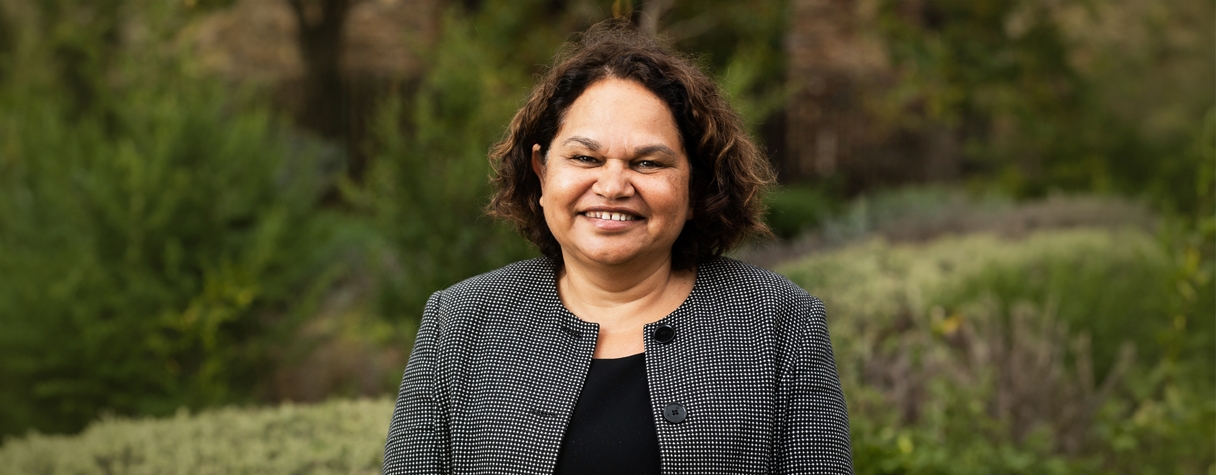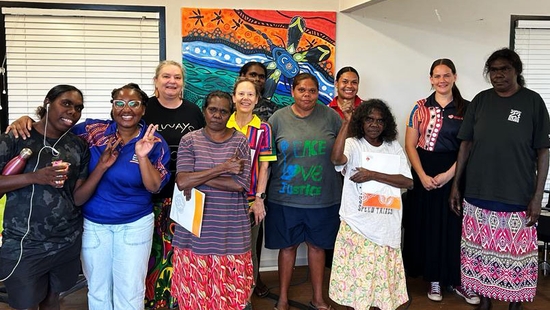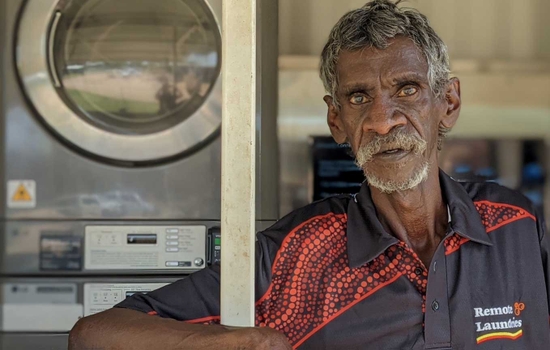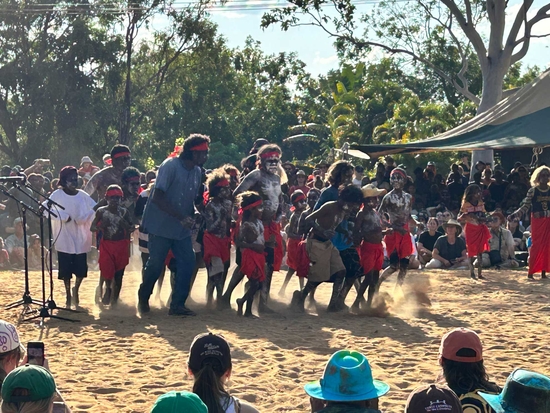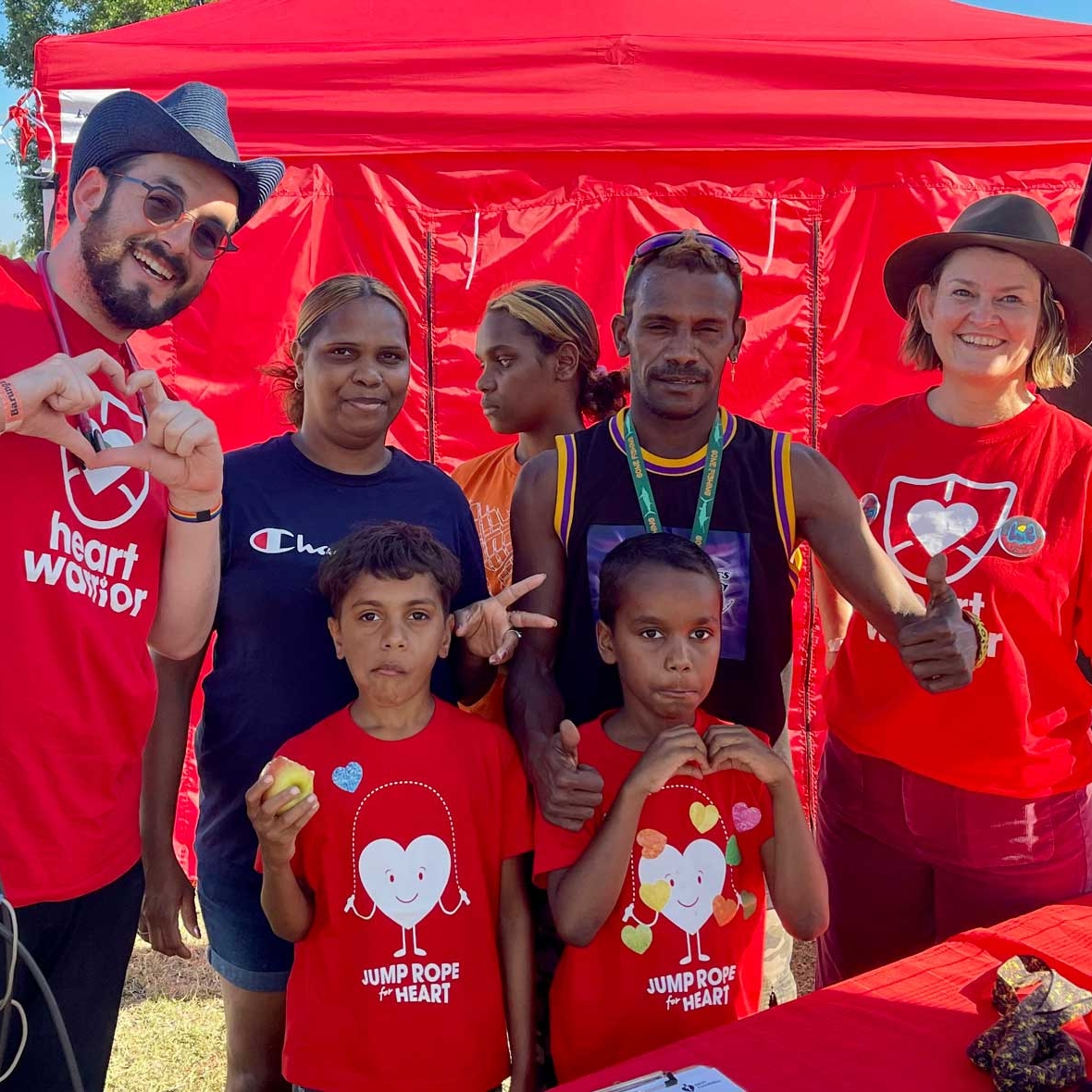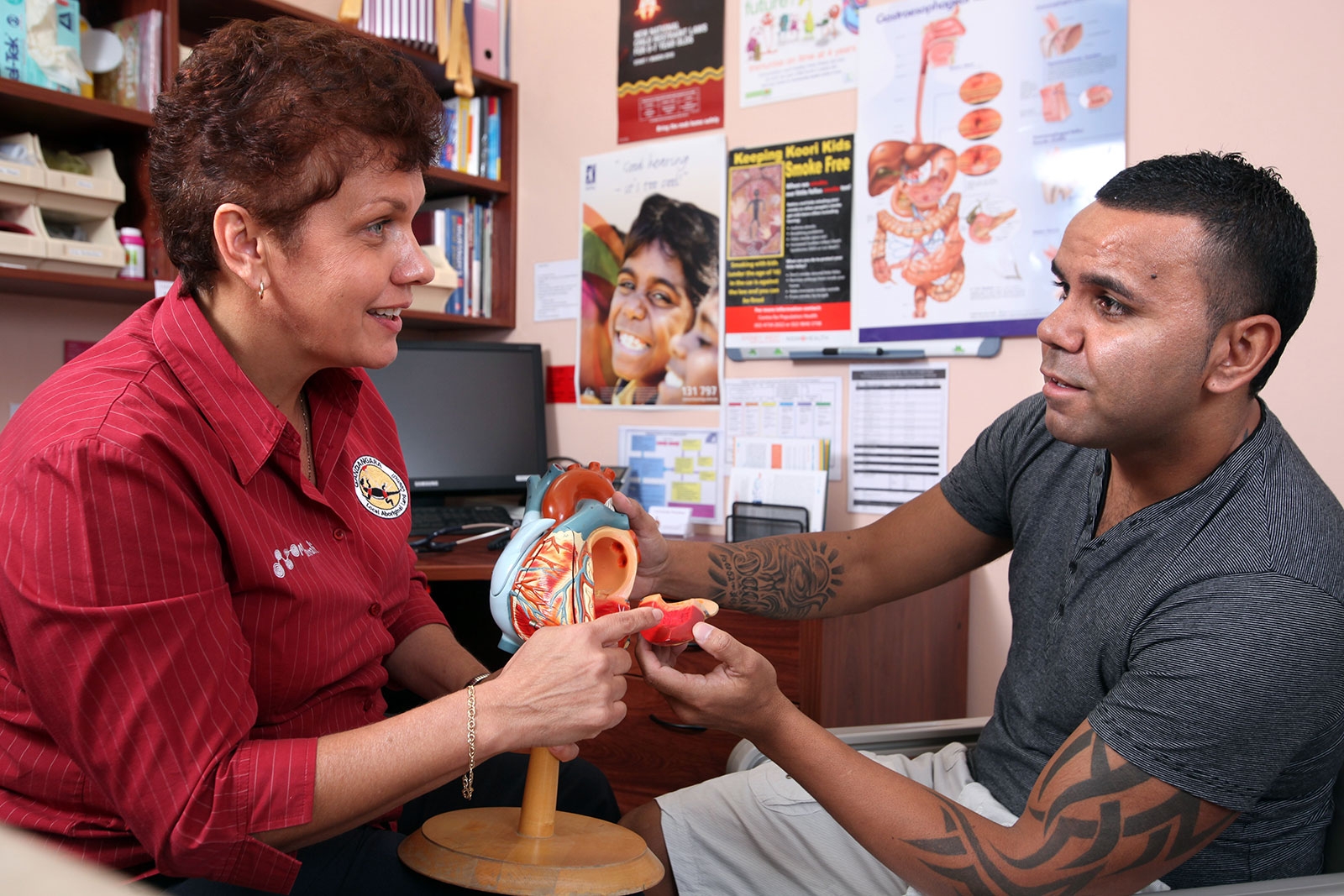
First Nations heart health
First Nations peoples should be aware that the information contained on these webpages may contain images or names of deceased people and may cause distress to certain viewers.
The Heart Foundation supports all people living in Australia to live a full and healthy life. We respect and recognise the unique status of Aboriginal and Torres Strait Islander peoples as First Nations Australians.*
*The term First Nations peoples will be used to describe both the Aboriginal and Torres Strait Islander peoples of Australia.
Cardiovascular health
More First Nations peoples are impacted by cardiovascular disease (CVD) than other Australians. They also experience cardiovascular disease at a younger age than other Australians.
CVD is the leading cause of avoidable deaths, and death overall, for First Nations peoples and is the main contributor to the gap in life expectancy between First Nations peoples and other Australians.(1)
The uneven burden of CVD risk factors (including high blood pressure and diabetes), ill-health and loss of life among First Nations peoples, is a result of the complex interplay between social, cultural, economic, environmental and political factors.
Identifying people who are at high risk, delivering culturally sensitive programs, providing health education resources and strategic advocacy are important ways to decrease the disproportionate burden of CVD for First Nations peoples.
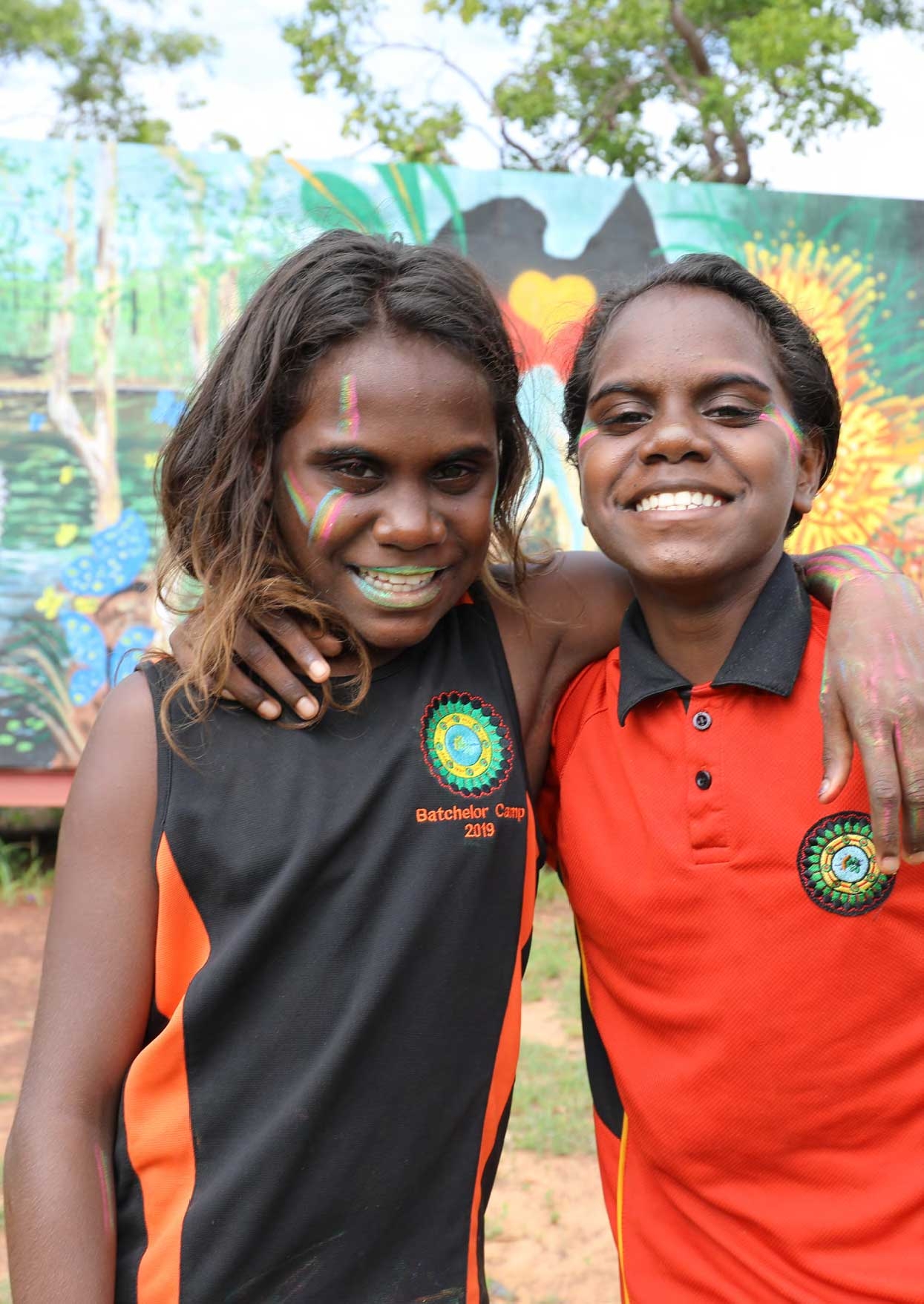
Barriers to accessing healthcare
First Nations peoples encounter a number of challenges when it comes to accessing quality health care including cost, lack of service availability (especially in regional, remote and low socio-economic areas), long wait times, and lack of culturally safe and responsive health care services and settings.
The Heart Foundation acknowledges the work that the Aboriginal Community Controlled Health Sector (ACCHS) does in providing culturally safe and comprehensive primary health care, including achieving an increase in Indigenous-specific health checks, such as heart health checks for First Nations peoples.(3)
Culturally appropriate healthcare
The Heart Foundation recognises the need to build strong relationships with First Nations communities and organisations to advocate for, support and deliver, better heart health outcomes.
Culturally appropriate healthcare for First Nations peoples encompasses a broad range of strategies aimed at holistic care, and strengthening and building community capacity.
Holistic healthcare for First Nations peoples must acknowledge that the mind and the body are interconnected with country, as well as addressing the risk factors for CVD, and the importance of physical, social, emotional, cultural and spiritual wellbeing.
There are a number of factors that have been identified as important for First Nation's peoples including cultural identity, family and community connections.(4)
First Nations leadership
The Heart Foundation acknowledges and respects the crucial role of First Nations leadership and Aboriginal community control in addressing the health needs of our Aboriginal and/or Torres Strait Islander population. First Nations leadership brings culturally safe and holistic perspectives that reflect unique health needs, integrate cultural practices, historical contexts and place-based solutions. We are proud to have a dedicated First Nations team leading on the Heart Foundation’s work and acknowledge the First Nations organisations and communities that support the delivery of our work to advance equitable and sustainable health outcomes.
First Nations leadership also encompasses the importance of lived experience expertise and shared decision making for achieving improved health outcomes. Assessing and reducing CVD risk with First Nations peoples requires culturally safe shared decision making by health professionals incorporating lived experience expertise (including individuals, families and communities) across the life course. We recognise that local place-based solutions and community led approaches relevant to specific communities and regions are also vital.
Working in partnership and collaboration with First Nations peoples, communities and leaders through community led approaches, shared decision-making, and incorporation of lived experience perspectives, is essential to strengthen health services andimprove health outcomes for First Nations populations.
Heart Health resources for First Nations peoples
First Nations peoples should be aware that the information contained on these webpages may contain images or names of deceased people and may cause distress to certain viewers.
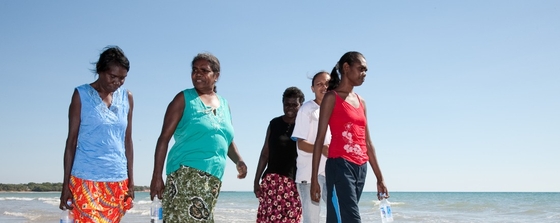
What is heart disease?
Heart disease can occur 10 to 20 years earlier among Aboriginal and Torres Strait Islander peoples and can lead to long-term health problems.
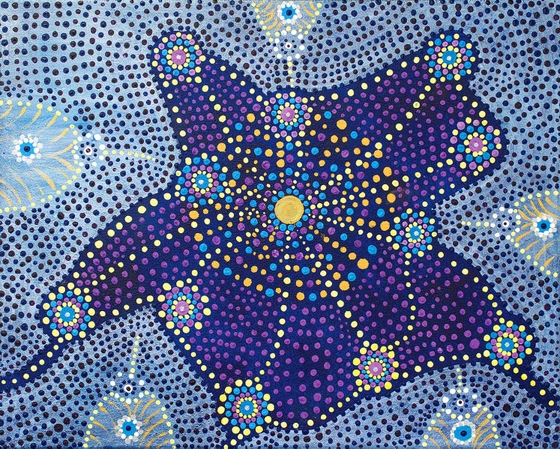
Aboriginal heart health website
Visit the St Vincents Hospital NSW and Heart Foundation Aboriginal heart health website for more information
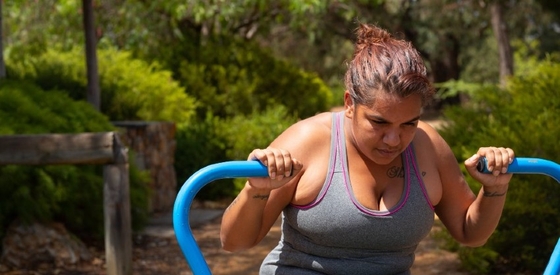
Looking after your heart
Preventing heart disease starts with knowing what helps keep your heart strong and what can hurt it.

How to keep your heart strong
Support and resources to help you stay healthy and reduce risk of heart disease.
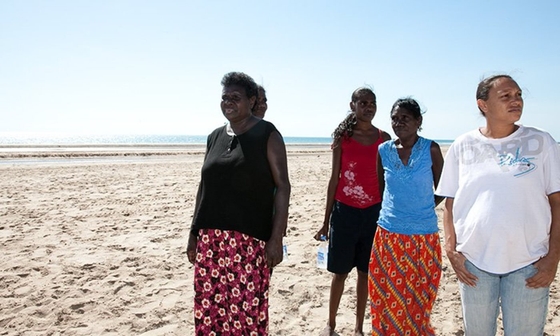
Pilbara Aboriginal Heart Health Program
The Pilbara Aboriginal Heart Health Program works with local communities to improve heart health.

What is acute rheumatic fever and rheumatic heart disease?
Rheumatic heart disease is a serious disease that causes damage to your heart valves.
Heart smart mobstyle resources
The Heart smart mobstyle resources are designed for all students to use, but specifically targets Aboriginal and Torres Strait Islander students through the inclusion of culturally relevant resources and learning experiences.
A healthy beginning is critical in preventing heart disease later in life, which is a risk for Aboriginal and Torres Strait Islander peoples. Educating children at a young age about the importance of good heart health has a long-term effect and decreases the number of people who will go on to develop cardiovascular disease in adult life.
Health professional resources for First Nations heart health
-(1).jpg?width=560&height=auto&format=pjpg&auto=webp)
For professionals: Aboriginal and Torres Strait Islander peoples information and resources
Resources for providing best practice cardiovascular care for Aboriginal and Torres Strait Islander peoples.

Guidelines for acute rheumatic fever and rheumatic heart disease
Australian guidelines for prevention, diagnosis and management of acute rheumatic fever and rheumatic heart disease.
.jpg?width=560&height=auto&format=pjpg&auto=webp)
For professionals: Women and heart disease
These healthcare professional resources aims to address current gaps in knowledge about heart disease in women.

For professionals: CVD risk assessment for Aboriginal and Torres Strait Islander peoples
Recommendations for assessing Cardiovascular disease (CVD) risk in Aboriginal and Torres Strait Islander peoples

Online courses for health professionals
Discover health professional online courses from the Heart Foundation, focusing on cardiovascular health, cardiac recovery, and disease management. Enhance your expertise today!
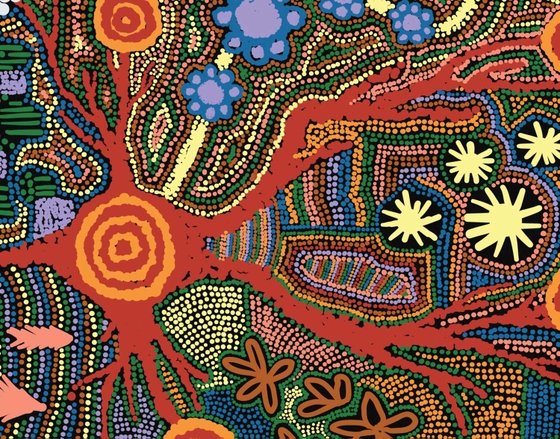
CVD Tool (heartyarningtool.com)
This tool is a conversation guide to help health professionals yarn about heart health and how to reduce the risk of heart attack and stroke.
More information, tools and references
Further information can be found at
Professional clinical resources are available on the ARF & RHD Guidelines site
RHD Infographic: Fast Facts Infographic 2024 | Acute rheumatic fever and rheumatic heart disease in Australia: 2018-2022
RHD Endgame Strategy: end-rhd-cre---endgame-snapshot.pdf (telethonkids.org.au)
Cardiovascular Risk Assessment Guidelines (2023)2 https://www.heartfoundation.org.au/Bundles/For-Professionals/FP-Absolute-CVD-Risk-Clinical-Guidelines 2020 consensus statement on CVD risk assessment for Aboriginal and Torres Strait Islander adults aged under 35 years.1 https://www.mja.com.au/journal/2020/212/9/cardiovascular-disease-risk-assessment-aboriginal-and-torres-strait-islander
National Heart Foundation of Australia & Cardiac Society of Australia and New Zealand: Australian Clinical Guidelines for the Management of Acute Coronary Syndromes 201627 https://www.heartfoundation.org.au/bundles/your-heart/conditions/fp-acs-guidelines
Tools
- Finding Your Way shared decision-making model
References
- Australian Bureau of Statistics. Australian Institute of Health and Welfare and Australian Bureau of Statistics analysis of the ABS Causes of Death: Table D1.23.18 2020 [Available from: https://www.indigenoushpf.gov.au/measures/1-05-circulatory-disease
- Australian Institute of Health and Welfare. Better Cardiac Care measures for Aboriginal and Torres Strait Islander people: seventh national report 2022 (data update). Canberra: AIHW; 2022
- Australian Institute of Health and Welfare The Health Performance Framework Summary report 2023.Canberra AIHW
- McBride KF, Franks C, Wade V, et al. Good Heart: Telling Stories of Cardiovascular Protective and Risk Factors for Aboriginal Women. Heart, Lung and Circulation 2021;30(1):69-77. doi: 10.1016/j.hlc.2020.09.931
Last updated03 February 2026
Last reviewed08 March 2024

